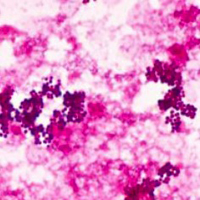The clinical relevance of pathogen Aerococcus urinae identification by MALDI-TOF mass spectrometry: a case of sepsis in 86-year-old Caucasian male

Submitted: 13 March 2020
Accepted: 20 July 2020
Published: 5 August 2020
Accepted: 20 July 2020
Abstract Views: 573
PDF: 308
HTML: 334
HTML: 334
Publisher's note
All claims expressed in this article are solely those of the authors and do not necessarily represent those of their affiliated organizations, or those of the publisher, the editors and the reviewers. Any product that may be evaluated in this article or claim that may be made by its manufacturer is not guaranteed or endorsed by the publisher.
All claims expressed in this article are solely those of the authors and do not necessarily represent those of their affiliated organizations, or those of the publisher, the editors and the reviewers. Any product that may be evaluated in this article or claim that may be made by its manufacturer is not guaranteed or endorsed by the publisher.

 https://doi.org/10.4081/mm.2020.8965
https://doi.org/10.4081/mm.2020.8965



